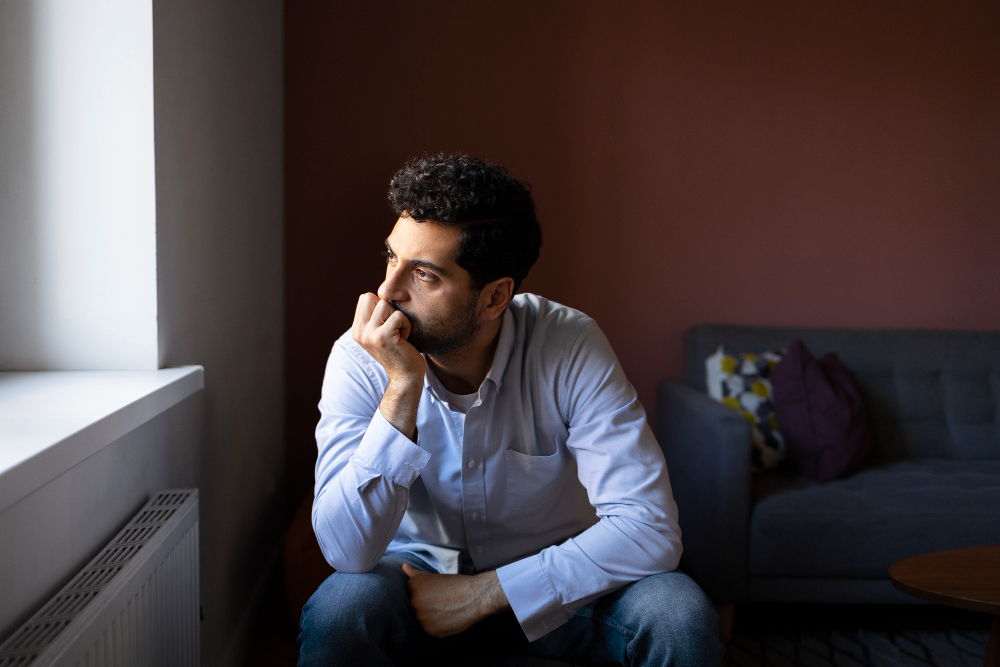Stress and sleep are deeply intertwined. While restful sleep helps regulate mood and reduce stress, chronic stress and anxiety often make it difficult to fall or stay asleep. This creates a frustrating cycle: stress disrupts your sleep, and lack of sleep makes you more vulnerable to stress. Understanding this connection is the first step toward breaking the loop and restoring healthy rest.
In this blog, we’ll dive into how stress and anxiety interfere with sleep, the science behind it, and practical strategies to improve both your sleep and your stress management.
How Stress Affects Your Sleep
When you’re stressed, your body activates the sympathetic nervous system—your fight-or-flight response. This triggers the release of cortisol, a stress hormone that increases alertness, heart rate, and blood pressure, all of which are counterproductive to sleep.
Common stress-related sleep issues include:
- Difficulty falling asleep (sleep-onset insomnia)
- Waking up frequently during the night
- Vivid or disturbing dreams
- Restless sleep and early awakenings
- Feeling unrefreshed after sleep
🧠 Note: Even if you manage to fall asleep under stress, the quality of your sleep—especially deep and REM sleep—may be compromised.
The Vicious Cycle of Stress and Poor Sleep
Lack of sleep increases emotional reactivity and decreases your ability to cope with stress. This leads to higher anxiety levels the next day, worsening sleep the following night.
Consequences of this cycle:
- Heightened anxiety or irritability
- Reduced concentration and productivity
- Weakened immune function
- Increased risk of depression and chronic health conditions
📉 Insight: Sleep deprivation impairs the brain’s prefrontal cortex, which is responsible for rational thinking and emotional regulation—making you more susceptible to daily stressors.
Stress-Related Sleep Disorders
Chronic stress and anxiety can lead to or worsen:
- Insomnia
- Nightmares or night terrors
- Sleep apnea (aggravated by physical stress responses)
- Restless legs syndrome (RLS)
If stress-related sleep issues persist for more than a few weeks, it’s worth consulting a healthcare provider or sleep specialist.

Strategies to Break the Stress-Sleep Cycle
1. Establish a Calming Bedtime Routine
Wind down with activities like reading, meditation, or warm baths. Avoid screens and intense stimulation at least an hour before bed.
2. Practice Stress Management During the Day
Daily stress reduction (journaling, deep breathing, nature walks) prevents anxiety from building up at night.
3. Use Mindfulness and Relaxation Techniques
Mindfulness meditation, progressive muscle relaxation, or guided imagery can help calm your nervous system before sleep.
4. Limit Stimulants and Alcohol
Caffeine and alcohol disrupt sleep cycles. Avoid them, especially in the evening.
5. Create a Sleep-Friendly Environment
Keep your bedroom cool, quiet, and dark. Use calming scents like lavender and invest in a comfortable mattress and pillow.
6. Cognitive Behavioral Therapy for Insomnia (CBT-I)
CBT-I is an effective, non-medicated approach to treat chronic insomnia caused by anxiety and negative sleep associations.
When to Seek Help
If self-help methods don’t improve your sleep or anxiety, it may be time to talk to a mental health professional. Therapists and sleep specialists can provide tools and treatments to help you regain control of your rest and stress levels.
Final Thoughts
Stress and sleep are a two-way street—each one can heal or harm the other. By understanding how anxiety disrupts your sleep and taking proactive steps to manage both, you can restore balance, improve emotional resilience, and wake up feeling refreshed and in control.








